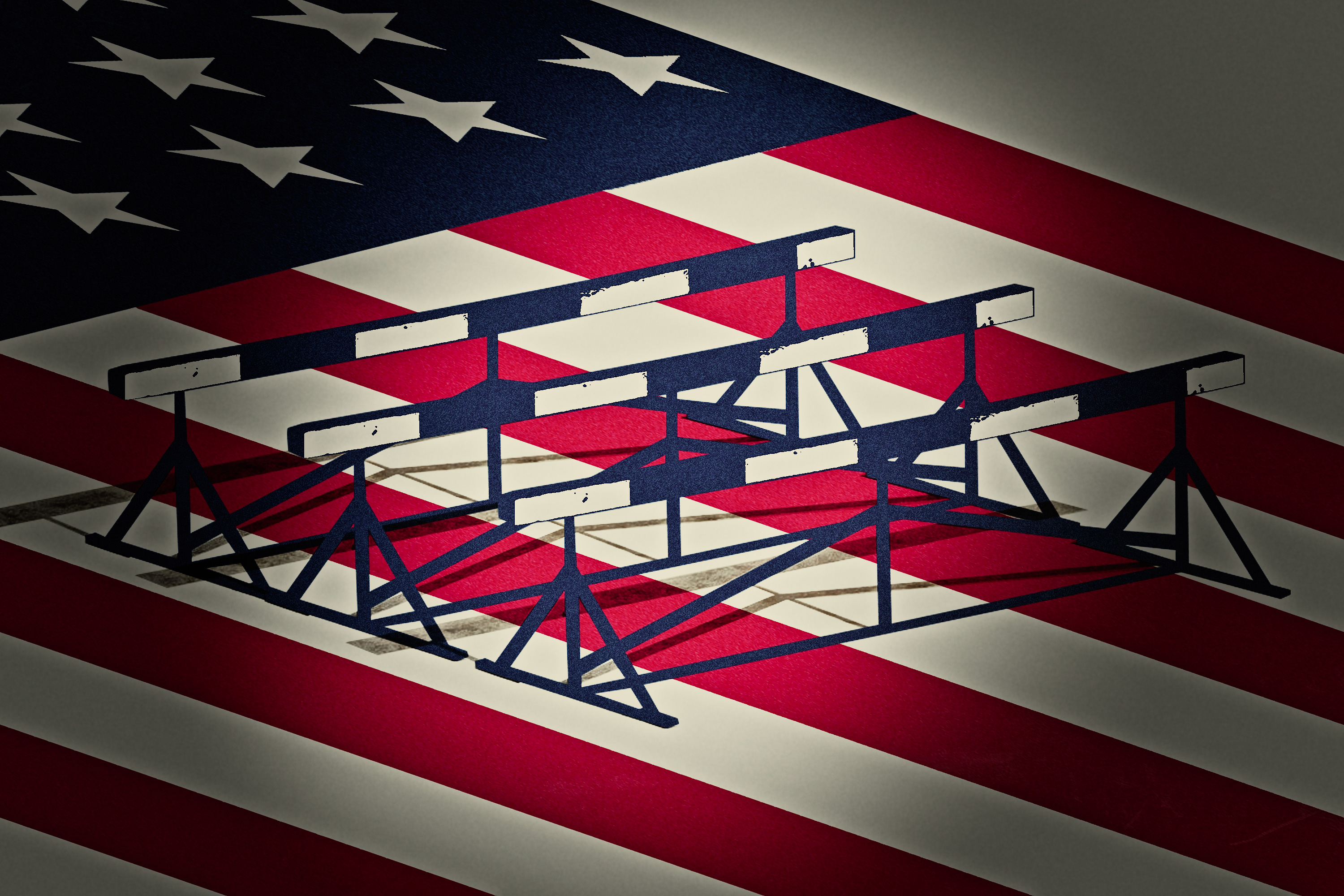Issue:
February 2025 | Letter from Hokkaido
Trump Mark II has Hokkaido firms and officials fretting over scallops, microchips and contested islands

Predicting what the return of Donald Trump as U.S. president could mean for Japan and East Asia is keeping journalists and commentators extremely busy. Every day brings a new Trump-related development or story angle to pitch to editors and producers - how what he said or did will affect the big picture of the U.S.'s ties with Japan and the wider region.
Less is being said about what Trump could mean to Japan’s regions, even though it is the direct local impact – feared or actual – of the Trump administration that should be occupying the minds of policymakers and the media.
In Hokkaido, media discussion about Trump has been muted in recent months. Like the rest of Japan, everyone here is taking a wait-and-see approach, at least publicly. To the extent Trump’s possible impact is being discussed, there seem to be three areas of interest: the Northern Territories, Hokkaido seafood exports to the U.S. and the Rapidus semiconductor project.
Reports at the end of January indicated that Prime Minister Shigeru Ishiba will meet Trump for the first time on February 7, an important day for Hokkaido. That date is Northern Territories Day in Japan, with campaign events planned in Tokyo, Hokkaido, and elsewhere. Since Russia’s invasion of Ukraine three years ago, there have been no direct visits by elderly former residents, who number fewer than 5,000, to their ancestors' graves on Etorofu, Kunashiri, Shikotan and Habomai.
As they grow older, former islanders who are increasingly desperate for a diplomatic thaw between Russia and Japan see cause for optimism in Trump. Interviewed by a Hokkaido TV station, former Northern Territories resident Yasuji Tsunoka said he hoped that Trump and Russian President Vladimir Putin would forge a relationship that also benefits Japan in the form of the Kremlin’s approval for the resumption of visits to the islands.
But Ishiba’s government has said little about the Northern Territories. And, given that Japan’s foreign policy establishment is more concerned about Ishiba and Trump developing a chummy, personal friendship than in discussing tricky problems such as the Northern Territories, the idea of Trump helping solve it seems quixotic at best. But who knows? It’s Trump.
Another concern in Hokkaido surrounds the future of scallop exports. The loss of the lucrative Chinese market after Beijing banned seafood imports, in response to the 2023 release of treated water from the crippled Fukushima Daiichi nuclear power plant, forced Hokkaido seafood exporters to find new markets. Washington stepped in, and Hokkaido’s frozen scallop exports to the U.S. doubled, from nearly ¥4.5 billion in 2022 to about ¥9 billion by the end of 2023.
But Trump’s threat of tariffs on a range of imported goods is worrying businesses in Hokkaido, which fear he could include locally caught scallops. They wonder what that could mean for smaller, more economically vulnerable exporters that have spent the last two years readjusting their businesses to cater to U.S. consumers. For some, losing access to that market would be devastating.
Then there is the question of Rapidus – a Japanese government-backed and largely Japanese corporate-funded firm in a key strategic industry that is licensing technology developed by IBM and producing cutting-edge 2 nm chips at a plant in Hokkaido. With Donald Trump - whose supporters are often from parts of the U.S. that lost manufacturing jobs to the rest of the world in the 1980s and 1990s - now in charge, Hokkaido-based semiconductor production could also be in his America First crosshairs.
My discreet discussions with businesspeople and government officials in Hokkaido have convinced me that Trump could be a problem, but only if someone in his administration decides to play politics with Rapidus. One of Ishiba’s strategies for dealing with Trump could be to stress the mutual benefits of increased bilateral investment in a variety of sectors, including semiconductors.
People involved in the Rapidus project have stressed the closeness of the larger U.S.-Japan relationship and downplay fears that Trump could cause problems. They may be right, and I certainly hope they are. But once again, it’s Donald Trump we’re talking about. That means the “what if?” factor is likely to concern people in Hokkaido, and their unease will only increase as the clock ticks down to pilot production at Rapidus in a few months’ time.
Eric Johnston is the Senior National Correspondent for the Japan Times. Views expressed within are his own and do not necessarily reflect those of the Japan Times.
Links
https://chishima.or.jp/info.htm#004

